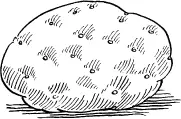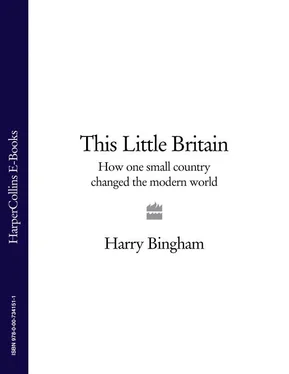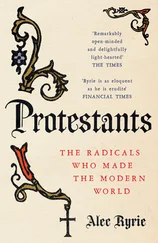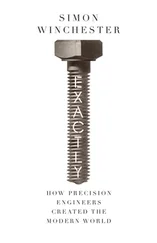What one makes of this collection is another matter altogether: a business for professional historians, not rank amateurs like myself. Having written a book built entirely on the scholarship of others, I’m as keenly aware as it’s possible to be of how much remarkable work is being done by historians today. I’m not just indebted to their work, I’m in awe of it.
LANGUAGE
The playwright and would-be spelling reformer George Bernard Shaw famously pointed out that, using only common English spellings, we could write the word fish as ghoti:
F: gh as in rough I: o as in women SH: ti as in nation
Shaw couldn’t have been trying very hard, if this was the best he could come up with. If he’d turned his attention to the other half of Britain’s national dish, he could perfectly well have come up with ghoughbteighpteau for potato:
P: gh as in hiccough O: ough as in though T: bt as in debt A: eigh as in neighbour T: pt as in pterodactyl O: eau as in bureau
Other languages have their eccentric spellings, of course, but English is in a league of its own. French, German, Spanish, Italian and Russian all spell more or less as they sound. English just isn’t like that. If you heard individual words from this paragraph and were asked to write them out, how would you know to choose more rather than moor or maw ? Know rather than no ? Would rather than wood ? Write rather than right or rite ? Or rather than oar, ore or awe ? Their rather than they’re or there ? You rather than ewe ? Course rather than coarse ? But rather than butt ? In rather than inn ? For rather than four, fore or even (for those acquainted with the archaic term for Scottish gypsies) faw? The answer is that, of course, you couldn’t. But nothing happens without a reason, and the strange spellings of English have their reasons too, lurking deep in the heart of Shaw’s potato.

The first point to make is that language is human. It’s fallible. Or, not to beat about the bush, it’s full of cock-ups. One such error is hiccough. The word first pops up in Elizabethan English as hickop or hikup , an adaptation of the earlier hicket or hicock . Now it’s pretty clear from all these versions that the word was onomatopoeic, a fair attempt to catch the sounds of a hiccup in letters. But no sooner had the word decided to settle down than people started to assume that a hiccup was some sort of cough. And if a hiccup was a cough, then shouldn’t it be written that way: hiccough , not hiccup ? The answer was no, it shouldn’t. Not then, and not now. The error grew nevertheless, until hiccough became at least as common as hiccup . The error is rejected by most dictionaries, but is still common enough that my computer spellcheck accepts both versions. Since people not dictionaries are the ultimate appeal court in these matters, then hiccough is certainly a real enough word, a mistake that’s passed the test of time.
Most oddities of English have little to do with straightforward errors. A bigger problem is that English is a living language, and its strangest spellings are often left as residues, like tree rings marking out past phases of growth.
English spellings largely derive from a particular period in British history, the fourteenth and fifteenth centuries. It’s possible to be as precise as this for the simple reason that for the three hundred years or so following the Norman Conquest English had mostly disappeared as a written language. When official documents needed to be written, they’d been written in French or Latin. Thus by the time that English began to re-emerge from its long hiding, it was faced with the challenge of adopting a writing system almost, as it were, from scratch.
This could easily have been a recipe for disaster. People tended to spell as they pronounced, and regional accents of the time were very varied. There are more than five hundred spellings recorded for the word through . The word she had more than sixty, including:
Scae Sse Sche Shae Se Che Shee Zhee Sheea Sheh Shey Sha Sso Sco Scho Schoe Show Sho Shoy Schew Schw Shoe Shou She Su Scheo Sheo Zhe
If you were writing just for your own friends, or to conduct business locally, perhaps none of this might have mattered. But as soon as official records and legal proceedings began using English too, then this kind of variation began to matter a lot; a common approach was called for. Naturally enough, London, home to the court and the senior echelons of the national bureaucracy, became dominant in imposing its spellings, in particular through the most senior bureaucrats of them all, the Masters of Chancery. Over time, they began to stamp their authority on the chaos. Out went all those scheos and sheeas and zhes , to be replaced by she . Out went ich (and many others) to be replaced by I . Because the movers and shakers of London spoke an English drawn mostly from London and the Midlands, our spelling is based largely on those accents.
Those early bureaucrats did a good job. Fifteenth-century English spelling was increasingly systematic and rational—a typical European language. Alas, however, no sooner had the spellings been fixed than pronunciations shifted. The spelling of words like through, rough and right is a perfectly accurate guide to the way these words used to be spoken. But the language has moved on, leaving these old medieval relics behind.
The silent B in debt is another tree ring.
When the Masters of Chancery were working to fix the language, there was a debate between those who thought that all spellings should be phonetic, and those who wanted them to be based on sound etymology. The phonetic camp won out in most cases, but not in all. Debt has a silent B, simply because medieval scholars wanted to point out that the word has its origins in the Latin debere , to owe. So a silent B was added—and never mind the fact that the word actually came from the French dette , which never had a B anywhere near it.
This was a quirky way to justify introducing a totally needless letter, and it was based on a more than generous interpretation of etymology, but there was, at least, an etymological connection, however thin. Medieval scholars were, however, prone to finding connections to the Latin where none actually existed, so our language is littered with plenty of spellings that are unjustifiable on any level. Island doesn’t come from the Latin insula; it comes from an s-free Germanic root. (Compare modern German Eiland.) Anchor, rhyme, scythe, island, numb, ghost and many others derived their oddness from other errors fixed and perpetuated by Renaissance dictionaries.
Читать дальше












